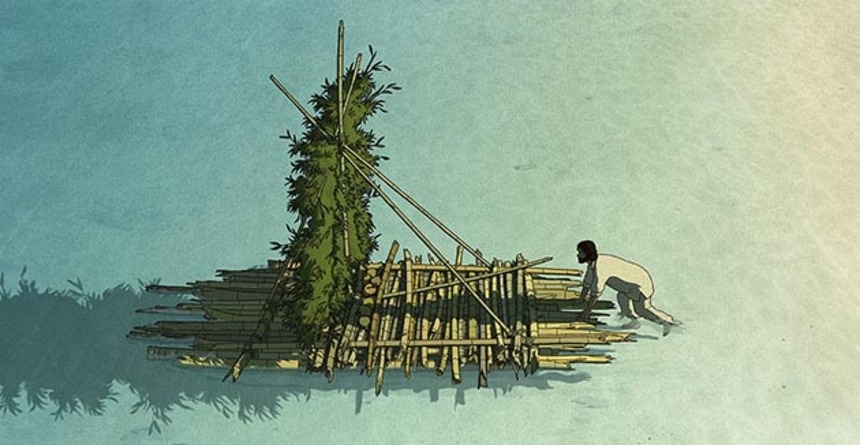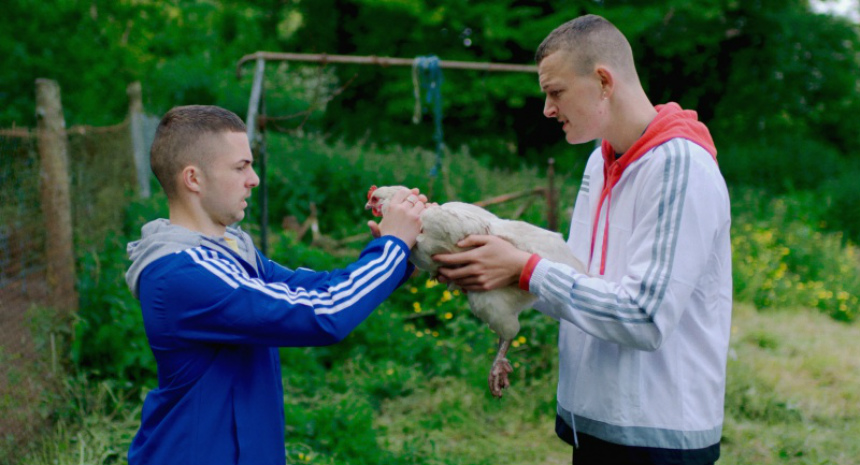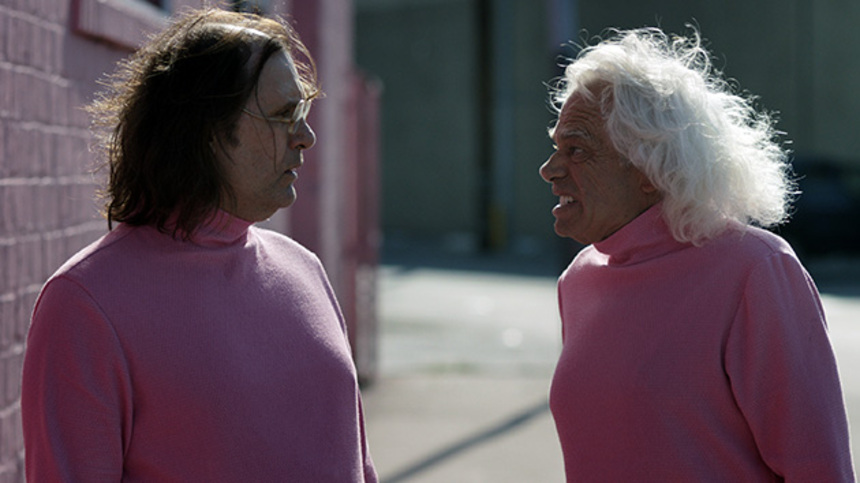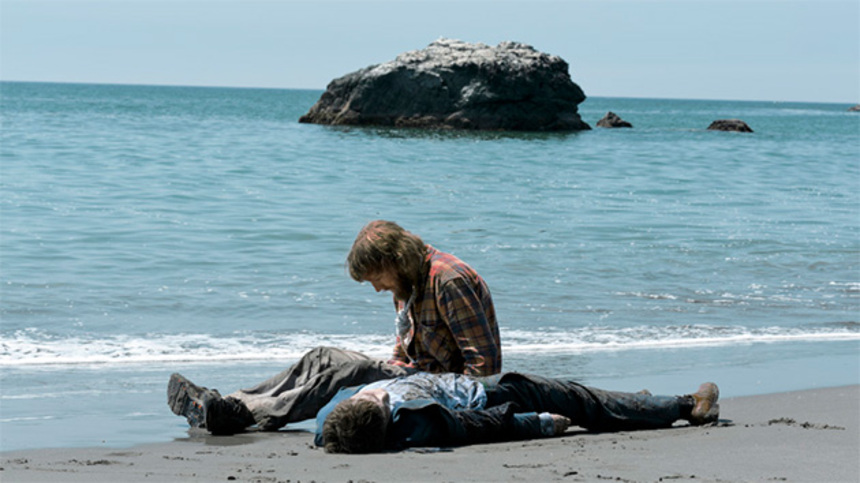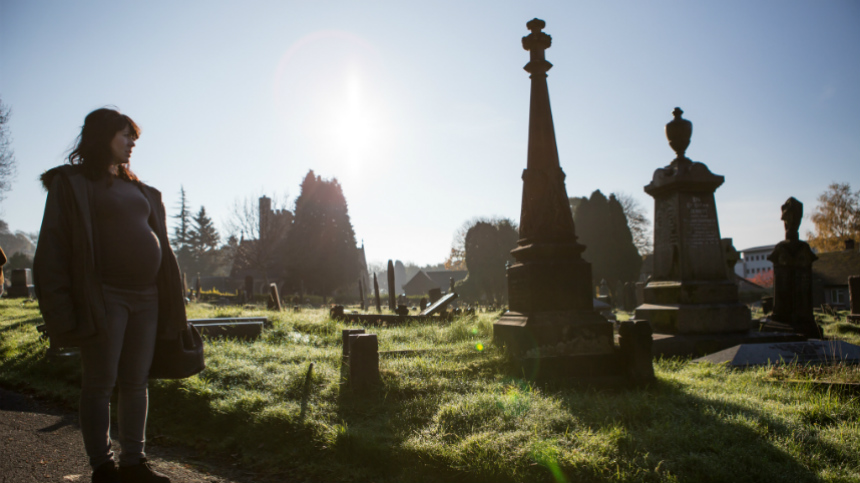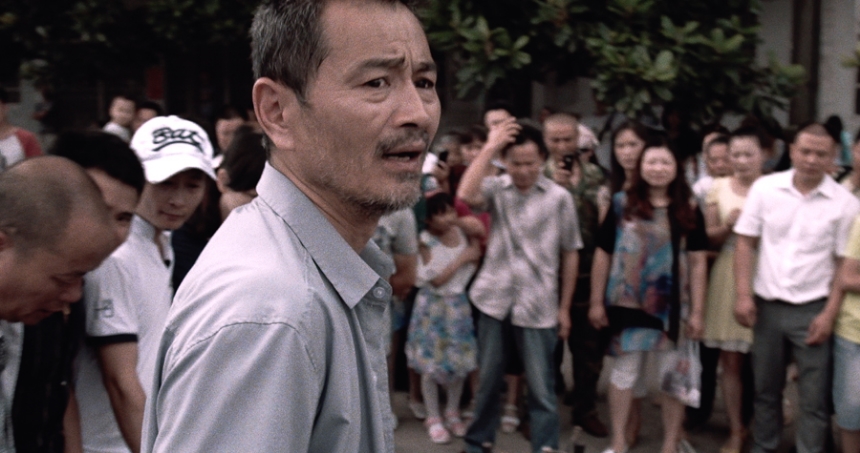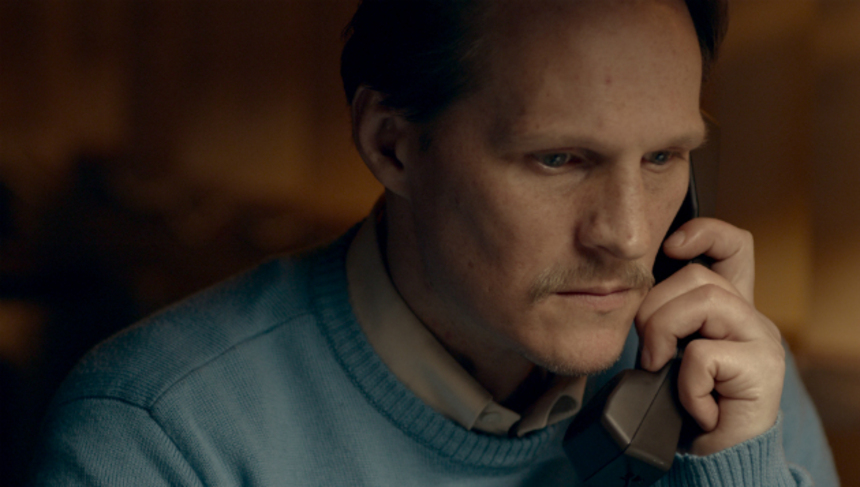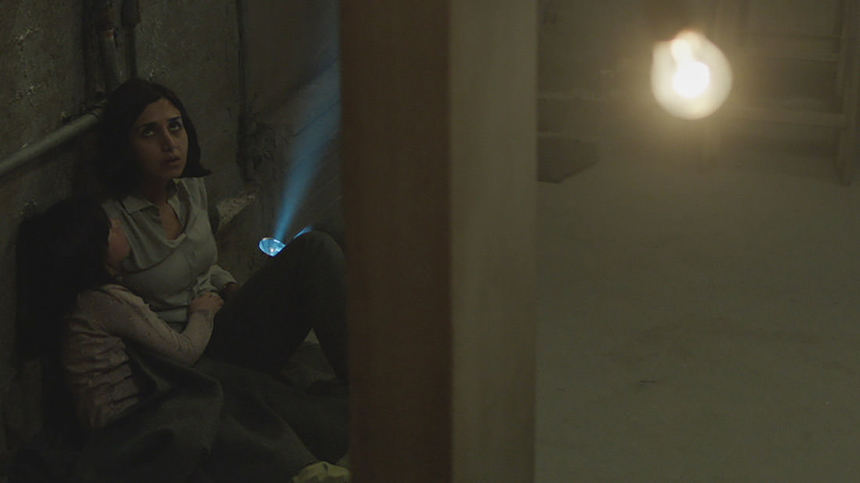
Babak Anvari (Under The Shadow)
Did anyone see Under The Shadow coming? Though writer-director Babak Anvari had previously been BAFTA nominated for his short film Two & Two the subject matter there was so radically different from the haunting power of Iran set ghost story that the entire production was, to a certain extent, an act of faith. And that faith was richly rewarded.
A deeply personal film revolving around a young mother robbed of her future and relegated to the sidelines as an educated woman in the aftermath of the Iranian Cultural Revolution - Anvari is on record saying he wrote the film for his mother - Under The Shadow excels not only as an atmospheric horror film but also as a portrait of a largely neglected period of history, an allegory for the current arc of western politics as they retreat to the right, and an insightful picture of parent-child relationships. Any one of these elements would be enough to drive the film but it's the interplay of them all that really elevates it to being something special enough that it's now the UK submission for the Best Foreign Language Film at the Oscars.
Michael Dudok de Wit (The Red Turtle)
In a bit of a tumultuous time for famed Japanese animation house Studio Ghibli - with recent years seeing both founders retire (and Miyazaki apprently unretire) and with the studio stepping away from feature animation - the bright spot for fans has come in the form of Dutch director Michael Dudok de Wit.
Following a string of acclaimed short films de Wit became the first foreign co-production in Ghibli's history and lived entirely up to the legacy of Miyazaki, Takahata et al with a gorgeously rendered and emotionally resonant debut feature that plays out entirely without dialogue. Putting the Ghibli logo on a debut feature puts an immense amount of pressure on the debutante while setting expectations almost impossibly high but de Wit was more than up to the task.
Julia Ducournau (Raw)
French helmer Julia Ducournau created quite a stir with her bloody coming of age tale Raw. And while I question whether the hysterical news stories of people passing out during Toronto Film Festival screenings helped or hindered the picture overall - there's really so much more going on here than the 'OH MY GOD, THIS IS SO EXTREME' tenor of those stories that I tend to lean towards hinder on that front - there's absolutely no denying that Ducournau is an absolutely fierce and unique talent with an utterly distinctive voice. Perhaps the most exciting thing here is that there's no telling at all where she's going to go next.
Peter Foott (The Young Offenders)
Make no mistake about it, comedy is HARD. And making a comedy that needs to generate emotional empathy for characters doing phenomenally stupid things? And do so in a way that'll let your story travel internationally despite relying heavily on regional dialect with no recognizable cast at all? Well, that's pretty much impossible. Except that's exactly what writer-director Peter Foott did with his debut feature, The Young Offenders.
The story of a pair of teens riding cross country on stolen bicycles to try and find cocaine washed ashore following a drug bust gone wrong went on to become the biggest local hit of the year at the Irish box office while also picking up awards at Fantastic Fest and is now gearing up for international release. Foott is quite simply the best kind of commercially oriented director, one who pleases his crowd while also respecting them.
Abe Forsythe (Down Under)
Yes, I'm presenting this list in alphabetical order to avoid having to rank the selections. But - hypothetically speaking, of course - if I were to rank them there's a very good chance that Australia's Abe Forsythe would come out topping the list. Because Down Under is flat out fucking brilliant.
The Four Lions of race relations films, Down Under takes the aftermath of actual race riots that happened in the Sydney suburb of Cronulla just a few years ago and plays the entire scenario out in a comedy that alternates between savage social satire and a deeply heartfelt exploration of its characters. Not content with just being funny - though it IS very, very funny - Forsythe, like all of the best satirists, understands that sometimes comedy needs to hurt and Down Under hurts in exactly the way it needs to.
Jim Hosking (The Greasy Strangler)
Is Jim Hosking the new John Waters? The two are different enough that the answer has got to be probably not but it's really the only comparison that makes any sense to me at all when confronted with Hosking's deliberately abrasive and deliberately cult style of absurdist anti-humor. He's not for everyone and I won't even begin to pretend that he is but after carving out a career jam packed of deliciously bizarre television ads - we've dedicated entire weeks to Hosking's TV coverage in these pages in the past - he has expanded his bizarre vision of the world out into feature length and there is literally nobody else even remotely like him in the world today. I have no idea at all how Hosking ever makes a movie that actually has a chance to make money (or at least enough money to give him a chance to keep making movies) but, my god, I hope he does.
Dan Kwan, Daniel Scheinert (Swiss Army Man)
Look, it's a movie starring Daniel Radcliffe as a farting corpse, alright? That instantly makes it a candidate to win the most Razzie awards ever and the only way it avoids that fate is if the directing is FUCKING AMAZING. And not only is it not in the Razzie conversation but it actually achieved a reasonably large scale commercial release (shocking), where it made a surprising amount of money (more shocking), and scored well with both critics and audiences (most shocking). It will always be a cult movie, yes, but that it reached that level is purely down to the raw talent of its creators. And Radcliffe's pretty amazing sense of humor about himself.
Alice Lowe (Prevenge)
Veteran writer and comedy performer Alice Lowe - you know her from Sightseers - made her feature directing debut with pitch black and blood drenched comedy Prevenge, the tale of an expectant mother driven to murder by her unborn child. Launching with the big kids at Venice and Toronto before moving on to raves on the genre circuit, Prevenge isn't just a suprisingly stylish bit of work, it's a stylish bit of work created under ridiculous circumstances, with the entire film shot in just eight days while Lowe herself was very heavily pregnant. And if she can do this much with this little ... well, the sky's pretty much the limit for Lowe.
Johnny Ma (Old Stone)
One of the most intriguing Chinese language projects of the year has lived somewhat beneath the radar, which is very much a shame because Johnny Ma's Old Stone is easily one of the most poised and confident debuts from the region in ages. The Canadian born Ma uses his outsider status to great advantage, his slow building thriller working out equally strongly whether taken at face value as the tale of a man driven to increasing extremes by economic desperation or if you choose to read in a deeper criticism of the Chinese legal system and social realities that undergird the film's central premise. A confident storyteller with a natural ability to balance visual style and strong characters, Ma is the real deal.
Tobias Nölle (Aloys)
Trying to sum up Swiss helmer Tobias Nölle's debut feature Aloys is something of a fools game. The off kilter private detective story is really more about experience and perspective than it is about plot and as such it's resistant to easy summary and the effort would be, as they say, akin to dancing about architecture: Not technically impossible but pretty entirely beside the point. But know this: It's wonderfully constructed, anchored by a memorable central character, quirky in the right ways, and is the sort of thing that can really only be pulled off by a director with a very clear vision which that director also very clearly understands. That's a more rare combination than you might think and Nölle clearly has it.














